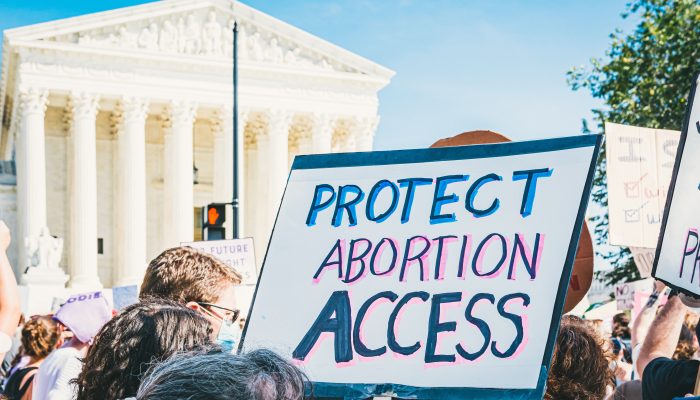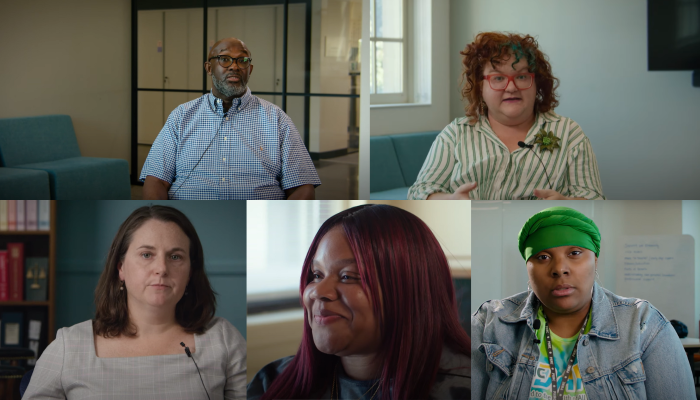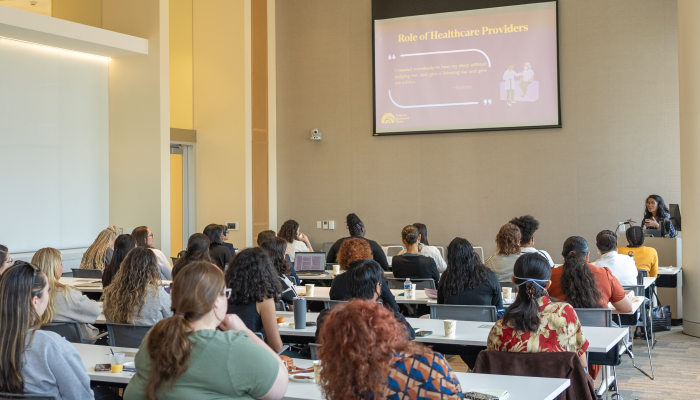by Liz Pride, Office of Domestic Violence Strategies
In early May 2022, a draft U.S. Supreme Court opinion in the Dobbs v. Jackson Women’s Health Organization leaked to the press. Since then, news coverage has focused on the potential end of federal protection to abortion access. However, state laws have chipped away access to safe abortion for a long time. This hurts survivors of abuse.
Legal does not mean accessible
While the 1973 decision in Roe v. Wade guaranteed the right to abortion, it left room for states to make their own laws about how to get an abortion. Since then, states have enacted over 1,000 restrictions on abortion, and 44% of these were passed between 2010 and 2021. These restrictions are often not medically necessary or recommended.
Furthermore, the 1977 Hyde Amendment prohibits, with few exceptions, the use of federal funds for abortion. This means that low-income people on Medicaid cannot use their insurance to access abortion.
Bans to limit access to abortion even more have been introduced all over the country – and eight have passed so far in 2022. As the number of states and clinics able to offer safe abortion decreases, so do options for pregnant people.
The impact of these restrictions means that many people, especially low-income women of color, face unfair burdens to accessing safe and common medical care.
The impact on survivors of abuse
As you can imagine, bodily autonomy is critical for survivors of abuse, especially if they have experienced reproductive coercion. One study found that abused women not able to get an abortion were more likely to continue experiencing abuse from a violent partner. Women who were able to get an abortion experienced a reduction in physical violence.
Pregnancy is a vulnerable time. And even more vulnerable in abusive relationships. In the U.S., pregnant women are more likely to die of homicide by an intimate partner than by other pregnancy-related causes. Abortion may not be the choice all survivors make, but it’s important that it is an option. For survivors who choose to continue their pregnancies, they should be supported in seeking safety and resources.
A safe and equitable future includes access to abortion
Abortion is a common medical procedure. Both in-clinic procedures and medication abortion are very safe. Most Americans support legal access to abortion. Restrictions and bans on abortion reinforce inequality. Abortion access is part of a full range of reproductive options. Access to safe abortion is a human right. This right must be protected for survivors of abuse.
What you can do
If you or someone you know is experiencing abuse:
- Get help for yourself or help someone else experiencing domestic violence or sexual assault
- Abortion is legal in Philadelphia. Learn about where to get support for or safely get an abortion.
- Get information about the abortion pill.
- Get support for continuing your pregnancy safely. Contact Maternity Care Coalition for help.
If you want to support abortion access and survivors:
- Learn about the Abortion Liberation Fund of PA, which protects and expands access to abortion for people in Southeastern Pennsylvania.
- Learn the facts and share. This 2-minute video shows what an abortion is.
- Volunteer to be a clinic escort.
- Learn about the Turnaway Study, which looked at the impact of unwanted pregnancy on women’s lives.
- Medical professionals can seek out training and resources on the dynamics of abusive relationships so they can help their patients.




